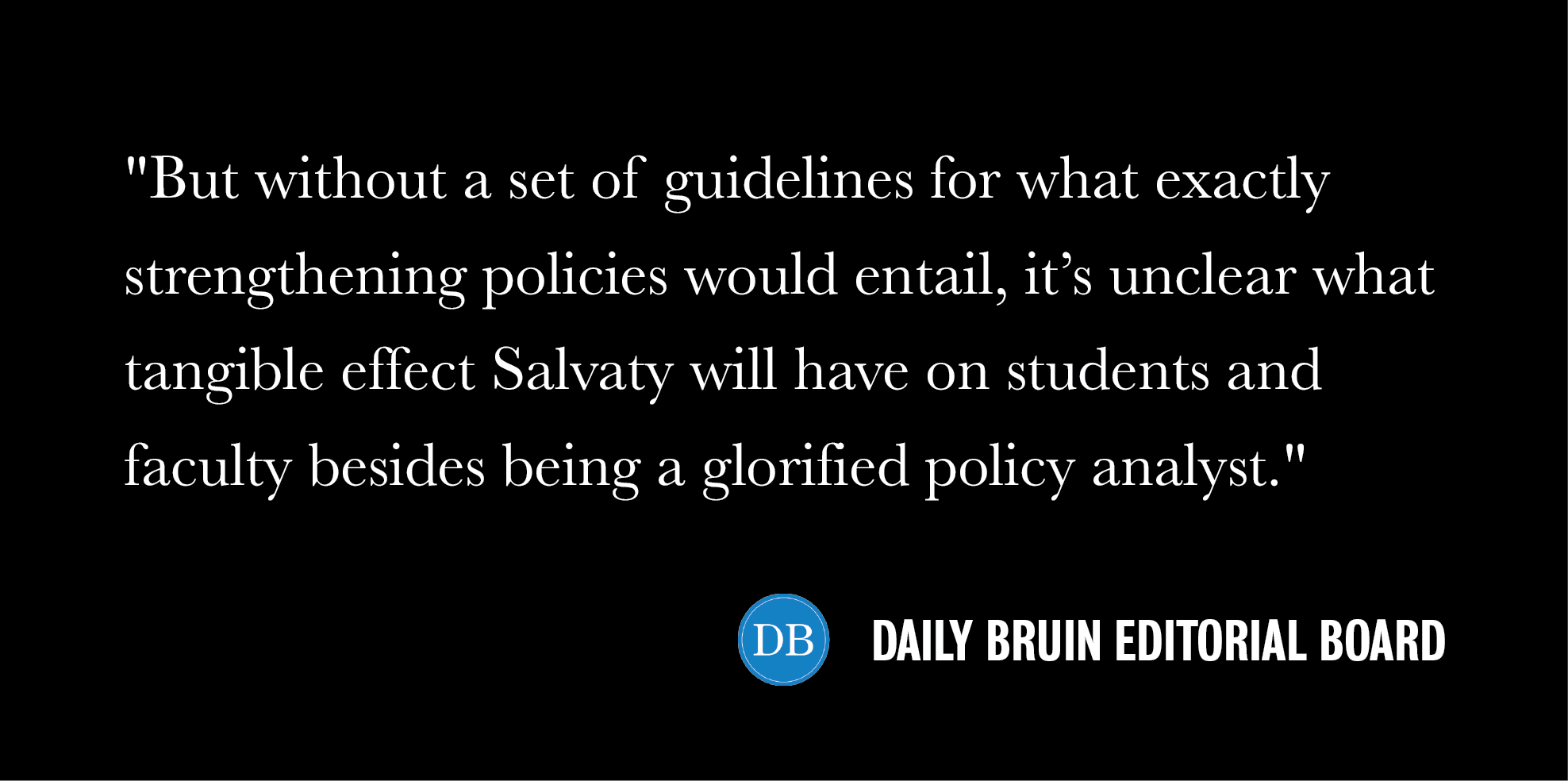Editorial: UC must outline specific guidelines for Title IX coordinator

By Editorial Board
Jan. 22, 2017 8:32 p.m.
The University of California is trying to take a proactive step to enforce gender equality laws, but its latest attempt casts it as a ship without a rudder.
Earlier this month, the UC announced that Kathleen Salvaty, UCLA’s Title IX coordinator, will take on a new role as the university system’s first Title IX coordinator. Title IX is a federal education law prohibiting gender-based discrimination. According to a university spokesperson, Salvaty will report directly to UC President Janet Napolitano and work to improve consistency in how campuses implement Title IX policies.
[Related: UCLA’s Kathleen Salvaty named UC’s systemwide Title IX officer]
For the record, however, the UC claims Salvaty’s new position doesn’t spring from a lack of consistency in how campuses have enforced Title IX policies. Rather, it claims, the new position is a step to work against sexual assault – though it failed to detail what exactly was proactive about the position.
Given these ambiguities, it is imperative the Office of the President creates a set of specific goals for the new Title IX coordinator and establishes a well-defined metric for measuring the progress made. Otherwise, the new position stands to be little more than bureaucratic waste.
The need for systemwide change is clear. The UC has recently received bad press regarding the mishandling of several sexual assault cases at Title IX offices on different campuses, including UCLA. And while the new Title IX coordinator seems like an effort to better organize policies and how they are enforced, the UC is making the mistake of charging in without a game plan.
On one hand, Napolitano claimed in a statement that Salvaty would help to more consistently enforce newly drafted Title IX policies across the various campuses. Yet, on the other hand, the UC claims there is no inconsistency across respective campuses’ Title IX offices. These mixed messages show not only a lack of coherence in the UC’s reasoning behind the new position, but also a lack of direction in what it hopes to achieve.
Even looking past the matter of uniformity, it’s clear the UC doesn’t even know what effect the Title IX coordinator will have on its campuses. Napolitano referenced the new policies regarding sexual violence and harassment as the reason for the new position, and a university spokesperson added Salvaty would help the UC to assess and strengthen its Title IX policies. But without a set of guidelines for what exactly strengthening policies would entail, it’s unclear what tangible effect Salvaty will have on students and faculty besides being a glorified policy analyst.
Thus, it is imperative the UC comes up with clear-cut parameters for the Title IX coordinator position. Without outlining explicit objectives for the position, it is difficult to see the benefits it could bring.
Sexual discrimination and harassment are certainly important issues on UC campuses, and it’s good that the administration is looking to address the issue proactively. But without actually figuring out which problems a systemwide office should – or even can – fix, it runs the risk of becoming administrative bloat. And to the chagrin of the UC, that’s just another example of splurging student fees.


